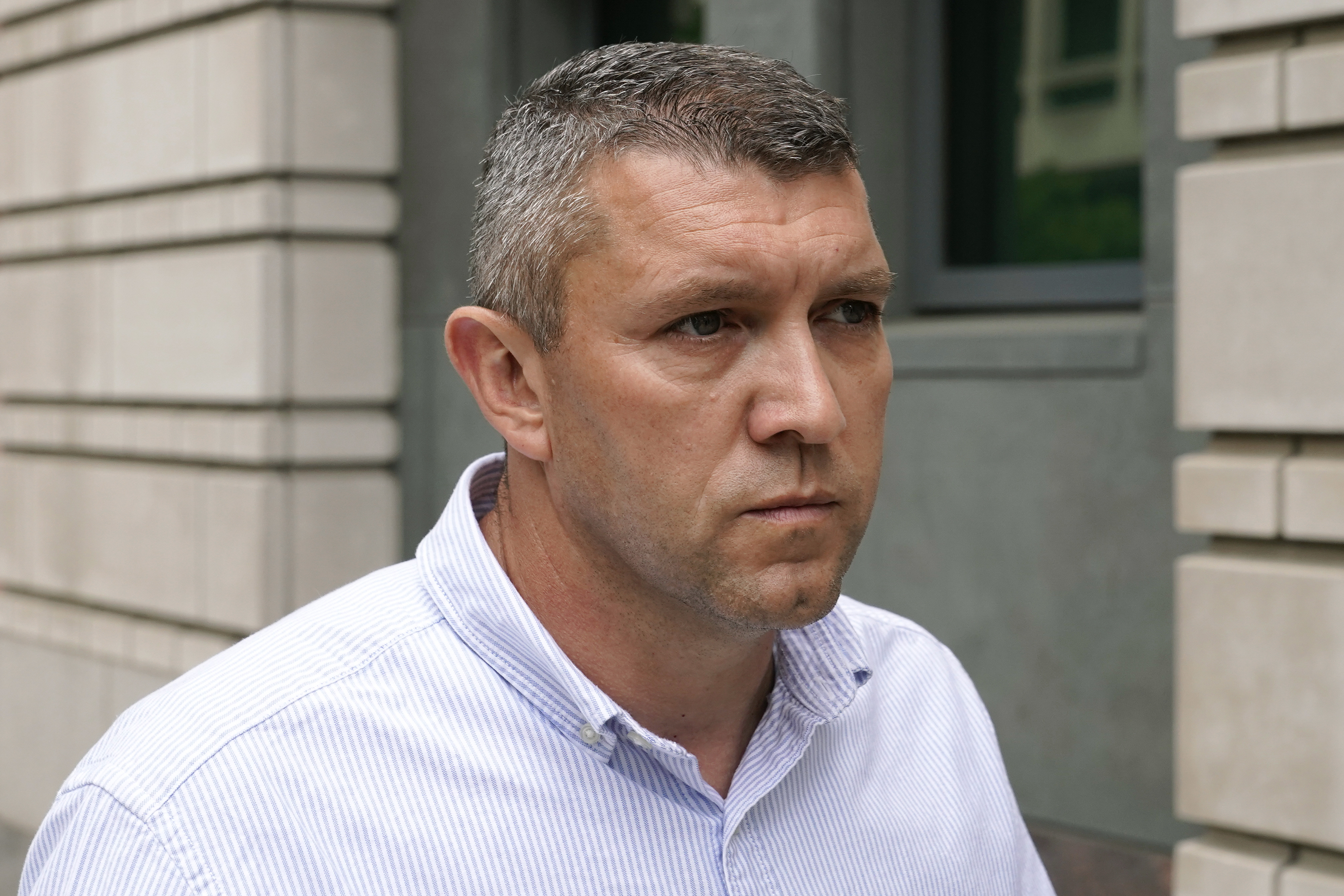What to Know
- Illinois, Chicago, Cook County and other jurisdictions across the Chicago area announced Tuesday that they are pausing use of the Johnson & Johnson COVID vaccine
- Next week, Illinois anticipated receiving 5,800 Johnson & Johnson doses out of a total of 483,720 expected doses
- Chicago has received a total of 91,000 doses of the vaccine in five shipments since February, less than 6% of the more than 1.6 million doses the city has received in total
Illinois, Chicago, Cook County and other jurisdictions across the Chicago area announced Tuesday that they are pausing use of the Johnson & Johnson COVID vaccine based on U.S. regulators' recommendation amid an investigation into six reports of rare but potentially dangerous blood clots.
How many doses have the single-shot J&J vaccine have the state of Illinois and the city of Chicago received? Much like the rest of the nation, the vast majority of vaccinations in both jurisdictions have been the other two available vaccines from Moderna and Pfizer.
"Moderna and Pfizer make up the vast majority of doses on hand in the State of Illinois," the Illinois Department of Public Health said in a statement Tuesday.
Illinois' allocation of J&J vaccine this week was 17,000 doses, IDPH said. That's out of a total of 551,590 doses allocated to the state this week, per IDPH's website.
Next week, the state anticipated receiving 5,800 Johnson & Johnson doses out of a total of 483,720 expected doses, officials said. That equates to just over 1% of the weekly allocation.
Illinois health officials did not immediately respond to requests on how many total doses of Johnson & Johnson's vaccine the state has received since shipments began earlier this year.
U.S. & World
Chicago has received a total of 91,000 doses of the single-shot Johnson & Johnson vaccine in five shipments since February, according to the city's data. It's not clear how many of those doses have already been administered.
Those 91,000 doses make up less than 6% of the 1,645,470 doses of all three available vaccines that the city has received from the federal government thus far.
Feeling out of the loop? We'll catch you up on the Chicago news you need to know. Sign up for the weekly> Chicago Catch-Up newsletter.
Chicago Department of Public Health Commissioner Dr. Allison Arwady said Tuesday that the city's allocation of Johnson & Johnson vaccine doses had already been lower than anticipated after the company said late last month that it had to discard 15 million doses after workers accidentally mixed up ingredients at a Baltimore facility.
"We had already seen a big drop-off in what was allocated for Johnson & Johnson here in the city because of these problems with the production plant in Baltimore," Arwady said during a Facebook Live broadcast Tuesday morning.
"And so last week we received about 40,000 doses of Johnson & Johnson and this week, already we were receiving fewer than 5,000 doses of Johnson & Johnson and so we had already previously spread out that 40,000 a little bit," Arwady said. "We did have a lot of plans for Johnson and Johnson, which are on pause right now while we wait to hear about this."
Arwady said those plans on hold included the city's homebound program, which brings the single-dose vaccine to those who cannot leave their homes, as well as vaccinations at O'Hare Airport, through the CTA's mobile vaccination bus and at some events through employers and unions, like a vaccination event for food service workers that had been scheduled with the Illinois Restaurant Association.
Vaccinations at the Chicago State University site that were initially supposed to be Johnson & Johnson doses may be switched to the other two vaccines, Arwady said, depending on supply.
Arwady said she expected to have more information after the Centers for Disease Control and Prevention's Advisory Committee on Immunization Practices meets to discuss the Johnson & Johnson review on Wednesday.
The CDC and the Food and Drug Administration recommended the pause Tuesday morning, announcing the agencies were investigating unusual clots in six women that occurred 6 to 13 days after vaccination. The clots occurred in veins that drain blood from the brain and occurred together with low platelets. All six cases were in women between the ages of 18 and 48.
More than 6.8 million doses of the J&J vaccine have been administered in the U.S., the vast majority with no or mild side effects.
The other two authorized vaccines, from Moderna and Pfizer, use different technology from the Johnson & Johnson shots entirely and make up the vast share of COVID-19 shots administered in the U.S. They are not affected by the pause.
The FDA and CDC recommendation came one day after Illinois expanded COVID vaccine eligibility to anyone age 16 and older, except for in the city of Chicago.
Chicago is scheduled to open COVID vaccine eligibility to all residents age 16 and older on April 19, Mayor Lori Lightfoot announced last week. Chicago receives its supply of vaccine from the federal government allocated separately from the state and as such, operates on its own framework and timetable independent of the state.
Chicago officials have repeatedly said the ability to expand eligibility depends on vaccine supply, saying on several occasions that the city was not receiving enough doses of the vaccine to further open appointments.
Arwady previously said that an uptick in Johnson & Johnson vaccine doses would enable the city to increase vaccinations in certain places like manufacturing settings, the homebound program and more. The mass vaccination site at the United Center was also scheduled to switch to Johnson & Johnson next week.



